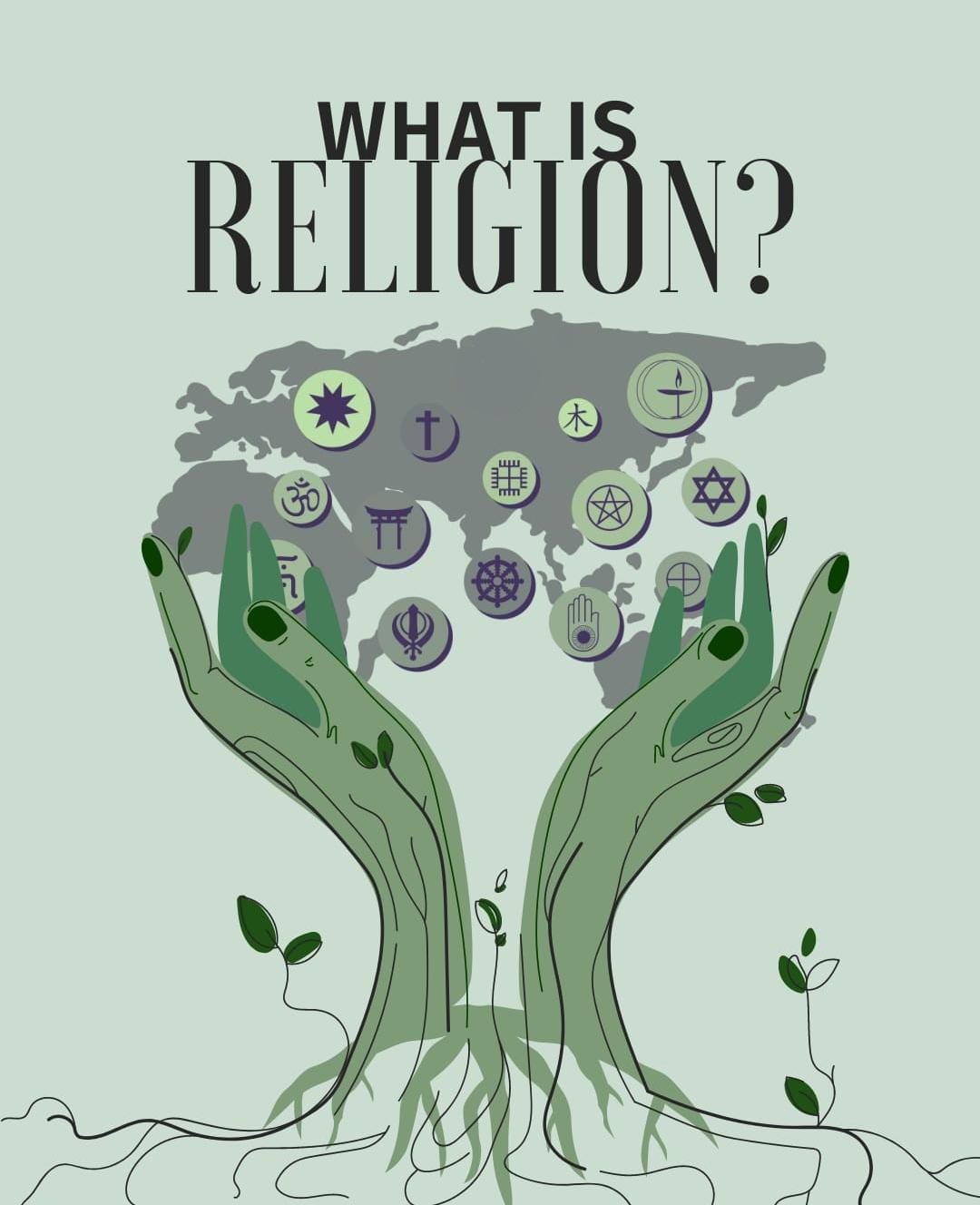It's the 21st century and when someone seems to be very peculiar about "Religion" the most common reaction generated is either a frown at or a displeasing gesture by the most "evolved" people indicating regressive behaviour or something similar. Right?

Religion, if used in contemporary grammar, is something that is understood as a concept of the past that has no significant relevance today apart from enjoying the perks of cultural customs and traditions that come along. This notion of insignificance arises from the predominant prevailing idea after "The Enlightenment Era" in the 17th-18th century where the battle between the injustices done under the name of Religion and the Rational human mind ended with the victory of the latter. And the former was deemed to be confined to the 4 walled chambers of the church, giving the authority of deciding the core moral conduct of life in the hands of the Most Evolved Rational Human Mind. Namely - Secularism. Meaning: The political belief in the separation of church and state, i.e. the position that religious belief should not influence public and governmental decisions.
Having said that, by birth secularism has its roots deep into hatred for Religion.
Now let's take a moment to understand what religion is. Belief in a spiritual or metaphysical reality (often including at least one deity), accompanied by practices or rituals pertaining to the belief. Religion is a range of social-cultural systems, including designated behaviours and practices, morals, beliefs, worldviews, texts, sanctified places, prophecies, ethics, or organizations, that generally relate humanity to supernatural, transcendental, and spiritual elements-although there is no scholarly consensus over what precisely constitutes a religion. Different religions may or may not contain various elements ranging from the divine, sacredness, faith, and a supernatural being or beings.
The definition written above is taken from a dictionary + wikipedia. But you might not notice that something's missing there and also something "fishy" i.e., the political aspect of running the state from which it was separated and the absence of a scholarly consensus over the constituents of religion which yet again is a by-product of the secular academia missing out deliberately taken out constituents. So now we add this aspect to the existing definition making it complete.
Reiterating the major aspects covered by religion - fundamental rituals, social, economical and political norms.
Not all religions consist of all these aspects as the majority of them contain only spiritual belief systems and certain criteria in the ritualistic realm that regulate the spiritual nature of one's life. But what falls prey to subjectivity is in following the remaining aspects not addressed by these religions for example Hinduism, Buddhism and Jainism. So excluding the religions that do not consist of every aspect that governs life individually and collectively, the only religions that stand out are Islam, Judaism and Christianity. All three of them being Abrahamic Religions.
Out of the three that have been part of practical implementation are only Islam & Christianity as Judaism as an ideology wasn't being implemented in all of its aspects due to the persecution of Jews by the Christians for a long period of time for which there's a tremendous amount of history available.
So we come back to the advent of secularism taking over Christianity leading to the separation of the state from religion and the religion being kept limited within the church only for rituals and cultural affairs. Bringing Political Christianity to an end. After the brutal takeover of Christianity by secularism the only religious entity that remained in all of its aspects was Islam. So with time and gradual efforts (with the allowance of Allah) the secular order of the world was unfortunately successful in taking over Islam as well.
So what remained now of comprehensive religions was only worship in the form of rituals, social, cultural practices and in some cases by the due allowance of the Secular order, permission of practicing some more aspects of religion which wouldn't harm the former system.
Now what is ironic and astonishing at the same time is the similarities between Religion and Anti-Religion (if we call the secular order that way) except for a few differences. So one of the foundational primary pillars of religion is "belief", which varies from religion to religion. But what that belief holds is values and standards for navigating through different aspects of life. To make it short and simple - A complete way of life.
Here when stating the word belief it is and should be understood that belief and disbelief being antonyms are used in regard to a common subject/idea/phenomenon. Meaning that someone who believes in a God/gods is bound to act by the principles laid down in that following ideology. Similarly, a person who doesn't believe in a God/gods happens to be an Atheist or an Agnostic, believing/figuring out to believe for eg. in the Theory of Evolution. Also as discussed previously we do know that religion in its comprehensiveness includes all aspects that govern an individual and society's life be it social, economic or political.
Breaking down each of these aspects and examining them would make it crystal clear in finding out the source of dictation.
Social - Liberal values
Economical - Capitalism (Usury/Interest-based)
Political - Secular (Socialist/Communist/Capitalist/Amalgam of All)
Spiritual - Let's find out...
Concluding the above point, it is only through real eyes that one would realise the fact that today's secular liberal order is governing the social, political and economic aspects of one's life which was hijacked from religion yet this ideology is not deemed to be a religion with a lacking spiritual nature. But to our surprise, it also has a spiritual nature in a material sense of achieving peace through striving for luxury and pleasure deep-rooted in its philosophy. Hence making it a complete (immoral) way of life and deeming it worthy enough to call it the Immoral Religion.